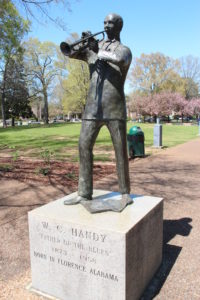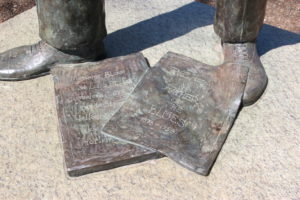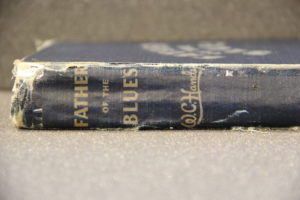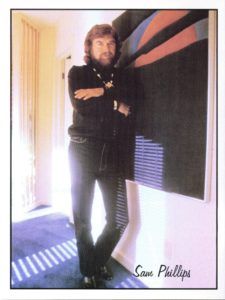W.C. Handy makes his first recording in 1918 and his career in music continued until his death in 1958. He tells his life story in his autobiography, Father of the Blues.



Florence native, Sam Phillips, who will earn the name “Farther of Rock ‘n’ Roll”, is born in 1923. Phillips will pursue a career in radio and will leave the Shoals in 1945 to move to Memphis, Tennessee. There he established the Memphis Recording Services, and later Sun Records. Phillips died in 2003. Phillips’ story is told in the book by Peter Guralnick, The Man Who Invented Rock ‘n’ Roll.

The nationwide lecture and traveling program and the program offered on the Chautauqua Redpath circuit was an advertised special program offered in 1929 at the State Normal School Summer School, “a school that trains teachers”, with the announcement that the annual engagement for a week the middle of June, was a wonderful opportunity for our student body, afternoons and evenings, with little interference with their school work. Three entertainments daily comprised the season which had a ticket price of $2.00. The Chautauqua Redpath troupe continued to perform into the second decade of the century. Traveling shows also performed regularly under the sponsorship of the Concert Association, and included the Russian Symphony Orchestra, opera stars, and the outstanding musicians and performers of the county.
The Pride of Dixie Marching Band began as the Tri-Cities and directed by Dr. William Presser in 1947, and became the first official college band in 1949 with the advent of football on campus. Twenty-seven students, out of the 1,400 attending the school formed the first marching band at Florence State Teachers College.
“Buddy” Killen, who will become known for his work in the genre of country music, is born in Florence in 1932. His later career in Nashville, Tennessee earned him the title “The Quincy Jones of Country Music”. Killen would tell his story in his autobiography, By the Seat of My Pants. Killen died in 2006.
Fiddlers gathered for music conventions and contest. Choirs, community chorus, singing conventions, quartets, brass bands, parades, concerts in the parks, picnics, military bands, fairs, the circus, and all manner of celebrations brought performers and audiences together.


